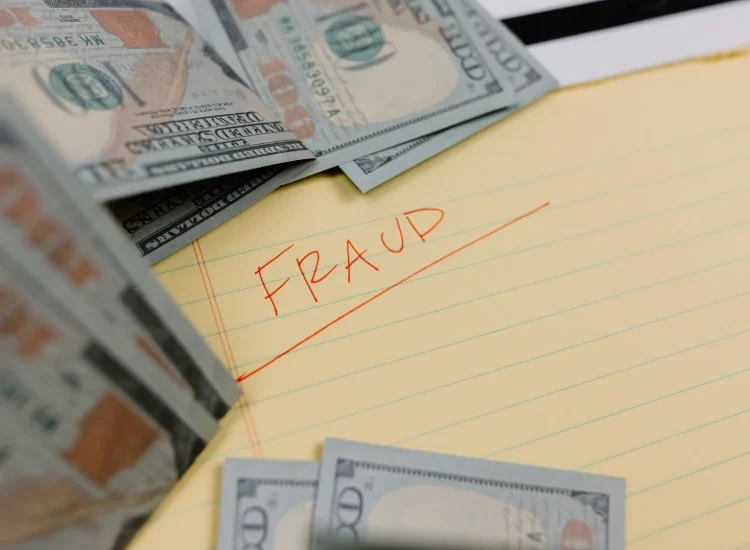Cryptocurrency has undoubtedly changed the financial landscape. While it offers numerous opportunities, it also has a dark side. Fraud and scams are rampant in the cryptocurrency space. To safely navigate this emerging market, knowledge is key. In this article, we’ll explore strategies for combating fraud and scams in the cryptocurrency realm. We will learn how to recognize red flags and take necessary precautions.
Recognizing Common Scams
First and foremost, recognizing common scams is essential. Be on the lookout for these typical fraudulent schemes:
Ponzi and Pyramid Schemes. Ponzi schemes involve returns paid to earlier investors using the capital of newer investors. Pyramid schemes, on the other hand, require members to recruit new participants. Both schemes are unsustainable and usually collapse, leaving those at the bottom with significant losses.
Fake Initial Coin Offerings (ICOs). ICOs can be a legitimate way to raise capital. However, scammers often use fake ICOs to steal money. They create sophisticated whitepapers and websites that seem legitimate but vanish once they collect enough funds.
Phishing Attacks. Phishing is when scammers trick individuals into revealing sensitive information. They often send emails or messages that appear to come from legitimate sources.
Pump and Dump Schemes. In pump and dump schemes, the value of a cryptocurrency is artificially inflated (pumped) and then sold off (dumped) for profit. This leaves unsuspecting investors with worthless coins.
Cloud Mining Scams. Cloud mining involves renting computing power to mine cryptocurrencies. While legitimate cloud mining services exist, many are scams. Scammers take money from investors promising high returns from mining but never actually mine any coins.
Essential Precautions to Take
Now that you know the common scams, let’s talk about precautions.
Research Before Investing. Before investing, conduct thorough research. Check the background of the company and team members. Read their whitepaper. Look for reviews or discussions in cryptocurrency forums.
Protect Personal Information. Be cautious when sharing personal information. Use strong passwords and enable two-factor authentication (2FA) whenever possible. Furthermore, be skeptical of unsolicited messages asking for sensitive information.
Use Reputable Cryptocurrency Exchanges. Choose cryptocurrency exchanges with care. Opt for well-established exchanges with a good track record. Check for proper security measures in place.
Diversify Investments. Don’t put all your eggs in one basket. By diversifying investments across different cryptocurrencies and projects, you can mitigate risks.
Keep Software Updated. Regularly update your software, including wallets and antivirus programs. Keeping software up to date ensures you have the latest security patches.
Be Wary of Unrealistic Promises. If something sounds too good to be true, it probably is. Be skeptical of promises of high returns with no risk.
Keep Funds in Secure Wallets. Avoid keeping large amounts of cryptocurrency on exchanges. Use hardware wallets or other secure forms of wallets to store your funds.
Tools and Resources for Combating Fraud and Scams
Several tools and resources can help in combating fraud and scams.
Reporting Tools. If you encounter a scam, it’s crucial to report it. Reporting tools like the FBI’s Internet Crime Complaint Center (IC3) or the Federal Trade Commission’s (FTC) Complaint Assistant can be valuable.
Educational Resources. Educate yourself through reliable sources. Websites like the FTC or the Securities and Exchange Commission (SEC) offer educational material on recognizing and avoiding scams.
Security Software. Use security software like antivirus programs and firewalls. This software helps protect your devices from malware and hacking attempts.
The Role of Regulatory Bodies
Regulatory bodies play an essential role in combating fraud and scams. They create and enforce laws to protect consumers. For instance, the SEC actively investigates and takes action against fraudulent ICOs. The Commodity Futures Trading Commission (CFTC) is another regulatory body that oversees the cryptocurrency market.
Additionally, cooperation between countries is vital. As cryptocurrency is a global phenomenon, international cooperation can help in effectively fighting scams and fraud.
Conclusion: Vigilance and Education
Combating fraud and scams in the cryptocurrency space is a collective effort. While regulatory bodies play their part, individual vigilance is equally critical. Educating oneself, practicing safe online behavior, and employing the right tools are vital in safeguarding against scams. The cryptocurrency market offers ample opportunities, but it’s important to navigate it with caution and informed judgment.
All the essential information and more is waiting for You at PINIGUS Launchpad blog.
